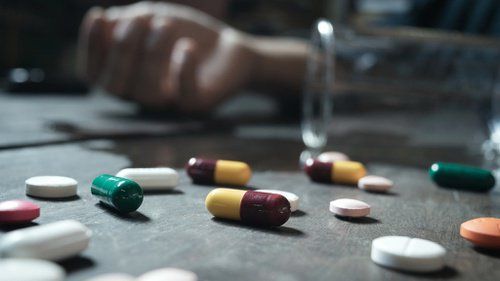The number of drug abuse among adolescents is increasing and requires innovative efforts. It is time to prevent drug abuse directed at empowering adolescents as agents of change for other adolescents. Adolescents are a unique group and are in a period of self-discovery because they experience many new things, especially in their social environment. It underlines the need to involve adolescents in every health promotion effort for adolescents to help them channel their talents and potential in a more positive direction, while at the same time making a positive contribution to other adolescents around them.
The program Peer educator is theoretically changing adolescent behavior with a friendly approach. Adolescents are saturated with various advice given by the adults around them. It makes teenagers reluctant to open up with teachers and parents. They will feel more comfortable to open up to their peers, primarily those who can provide solutions without judgment. It underlies the hypothesis that peer education programs will be useful in changing adolescent behavior for the better.
The article “Peer-to-peer education to prevent drug use: A qualitative analysis of the perspectives of student peer educators from Surabaya, Indonesia” is about students who are peer educators (both currently and at the previous education level) expressed their opinion about their readiness to provide counseling. The students in this study were representatives of 10 public and private schools in 5 regions in Surabaya (north, east, west, south, and center). The article reviews the opinions of teachers about the readiness of students and their schools if the program peer educator is reactivated. There are five themes obtained from interviews and Focus Group Discussion (FGD) with students and teachers in 10 high school schools in Surabaya. The five themes represent external and internal factors that show students’ readiness to conduct counseling with their peers. The five themes show the skills students have about their role as peer educators.
The information in this article can be used as material for consideration for stakeholders relevant to revive the program, peer educator, which begins with the provision of skills that students do not already have and strengthening existing abilities. It was reinforced by the support of school teachers who were informants in this study who expressed their hope that the peer education program would be systematically organized in all high schools in Surabaya.
Author: Ira Nurmala
Link: https://onlinelibrary.wiley.com/doi/abs/10.1002/hpja.400
Nurmala I, Pertiwi ED, Muthmainnah M, et al. Peer-to-peer education to prevent drug use: A qualitative analysis of the perspectives of student peer educators from Surabaya, Indonesia. Health Promot J Austral. 2020; 00: 1–6. https://doi.org/10.1002/hpja.400





